Caleb Wilde is a funeral director who blogs about the business of death at Confessions of a Funeral Director.
*Please read with care: The stories told below may be shocking.
* * *
I traveled to Uganda with World Vision to write about the programs World Vision is implementing in Uganda, including their efforts to fight ritual child sacrifice. They invited me because they thought I might be able to process and compose some thoughts on some of these darker stories.
One. It’s happening. Actually, literally happening.
Before I flew to Uganda, I was skeptical that something like “ritual child sacrifice” was taking place in the 21st century. I was especially skeptical that the term “child sacrifice” was exactly what it sounds like.
But after spending a week listening to a mother tell the story of her child’s abduction and eventual rescue, seeing a localized Amber Alert system, and seeing the palpable fear in the local communities, I can say this isn’t a simple story, but I do feel like I can represent some of the things that are happening.
Specifically, I can say it’s literally happening. Ritual child sacrifice is happening in Uganda. In fact, the week I was there, two children were abducted and murdered as a ritual sacrifice in two separate districts.
Two. Stopping ritual child sacrifice is this man’s life work.
The first time Obed — the World Vision director spearheading efforts in Uganda to stop child sacrifice — saw a child sacrifice victim, he was teaching a World Vision child protection course to a country tribe. He heard some screams, ran to the location the screams were coming from, and found a mother hysterically yelling over the decapitated body of her 8-year-old son. The murder had happened only moments before she found him. Obed, in a frenzy, scooped up the body, jumped on a moped, and started driving to the nearest medical clinic, “because,” he told me, “the boy was still moving, and I thought I could save him. Of course, I was traumatized, and still am,” he confessed.
By the time Obed returned to the village, the suspected murderer had been killed by a mob of angry tribesman. Obed showed me photos of both the murdered boy and the murderer. From that point on, Obed hasn’t stopped working to protect children and working with local authorities to establish and enforce laws and protocol that help convict the murderers while moderating mob justice.
Three. The ritual stems from a belief in witchcraft.
Witches (a gender-neutral term) and witch doctors (again, gender neutral) are two different things, but both dabble in witchcraft. Witches can cast evil spells (some Ugandan’s believe AIDS is caused by the spells of witches and evil spirits), while witch doctors are traditional healers; they create remedies to heal the effects of evil witchcraft and evil spirits (many believe that witch doctors can heal AIDS). It’s estimated that there are 3 million traditional healers (witch doctors) in Uganda.
Obed explained that Ugandans believe there’s witchcraft power in the shedding of blood. Usually, that blood is shed from animals sacrificed at local shrines. But as people have become more desperate to manipulate and appease the spirits, they’re now turning to the shedding of human blood and using human body parts.
When Obed talked about witchcraft, it wasn’t the way I’d talk about it. I talk about witchcraft like it’s some superstitious mental manipulation that preys on people’s fears. But, and this is a big “but” — I don’t believe it has any actual supernatural power. Obed — a college educated Ugandan who is married to a lawyer — believes differently. He’s seen it work, he says. He’s seen supernatural power. And I think the whole country feels just like he does.
Four. Child sacrifice is a symptomatic problem.
In many low-income nations, when a family is in extreme poverty, they’ll often sell their girls to older men for marriage starting at 8 years of age. Because they’re so young, many will get pregnant as soon as their bodies are able, and either their babies or they themselves die from the physical labor of a pregnancy at such an early age.
And because polygamy is legal in many African nations, young women forced into child marriage sometimes must raise and provide for their children on their own while the men attend to their own wants and needs with their other families.
Extreme poverty causes many social ills.
Many girls are sexually abused at a young age.
Many children are physically abused at a young age.
Uganda sometimes experiences famine.
Corrupt politics can contribute to the problems.
THERE ARE SO MANY THINGS THAT CONTRIBUTE TO THIS PROBLEM.
And when this confluence of problems hits a family, or a community, the extreme poverty coupled with witchcraft results in some people taking extreme measures, like child sacrifice.
Child sacrifice is a problem, but it’s a symptom of a complex confluence of more prevalent problems.
Five. What Obed and World Vision are doing.
Obed and World Vision are spearheading efforts to stop child sacrifice through an integrative approach. It involves a localized Amber Alert-type system for child abduction, connection, and outreach to Uganda’s network of shaman and witch doctors (challenging the beliefs that call for child sacrifice). It also involves the Ugandan law enforcement and government (to create and enforce more thorough child protection laws), and community education programs that work at a grassroots level to elevate the awareness of child abuse on all levels, from the home to the school.
This work consumes Obed. His sleep is interrupted by the screams he’s heard. The images he’s seen constantly flash through his mind. And he’s often very lonely in his efforts. The last day I was in Uganda, we talked for two and a half hours about everything from the times he’s held dying children, to the victories he’s had, and the complex belief system and motivations that cause a person to sacrifice a child.
He showed me the files he keeps on each child sacrificed. He told me their stories. Showed me their pictures when they were both alive and dead. He keeps extensive notes for each case. Notes that detail everything from what body parts were taken from the child, the suspected murderers in each case, the current legal proceedings, and the efforts he’s put forth in counseling and supporting each child’s family.
It’s been a week now since I left Uganda. I’ve been telling people that Uganda is NOT Las Vegas. What happens in Uganda comes home with you. It stays with you. It’s a beautiful country with beautiful traditions and beautiful people. Uganda doesn’t equal child sacrifice. This doesn’t define them.
But, it is happening. It’s happening because there’s a devaluation of children, especially girls. It’s happening because child marriage and polygamy are keeping girls out of school. It’s happening for so many reasons.
Money won’t solve the problems in Uganda, but it can help people like Obed and the children he seeks to protect.
* * *
Read Caleb’s full “10 things you need to know about child sacrifice in Uganda.”
World Vision child sponsorship is one of the most powerful ways to help protect vulnerable children and keep them safe from dangers like violence and exploitation. By helping communities and families work together to meet children’s needs, we can take a big step toward preventing child slavery, human trafficking, and child sacrifice. Choose a child to sponsor in Uganda today.
Read what our other Uganda bloggers are writing about their trip!
Danielle Smith: “Do good: Journey to Uganda with World Vision”
Tammilee Tillison: “Uganda changed me”
Matthew Paul Turner: “This is J’s story, an all too common story in Buikwe, Uganda”
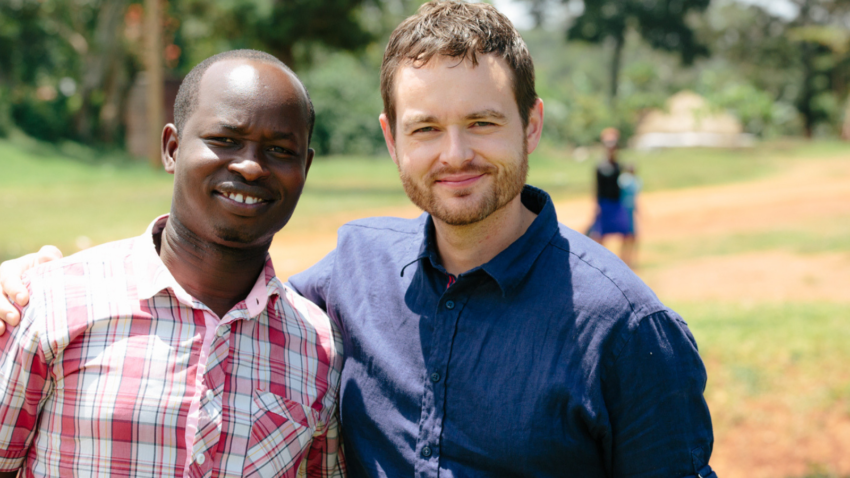
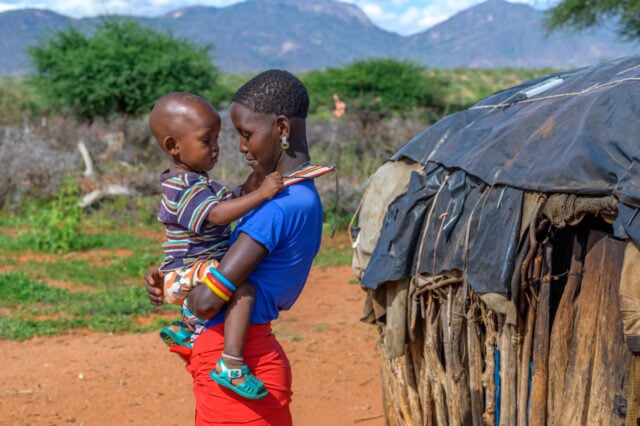
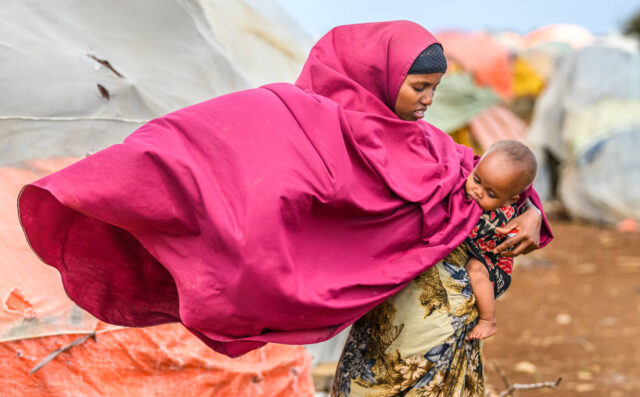
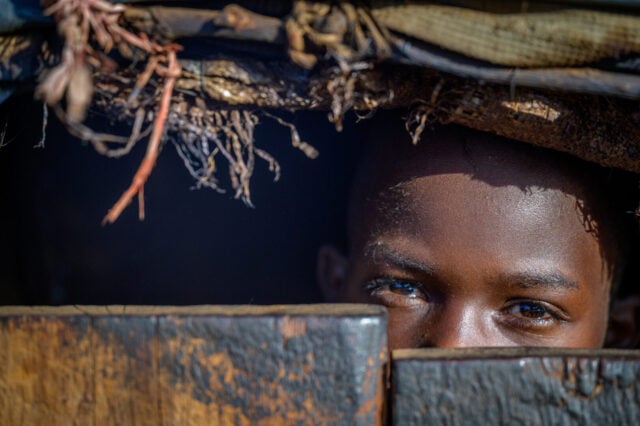
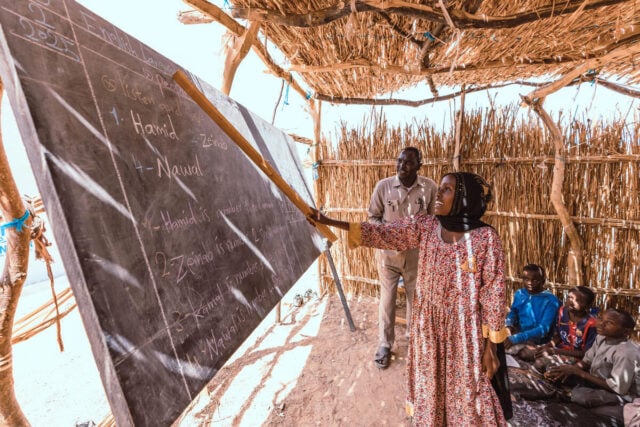
Comments